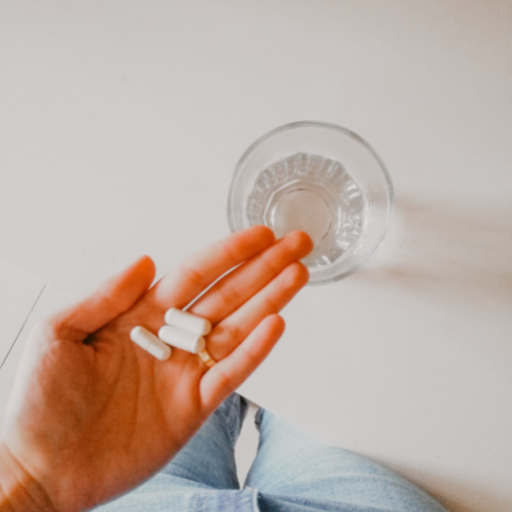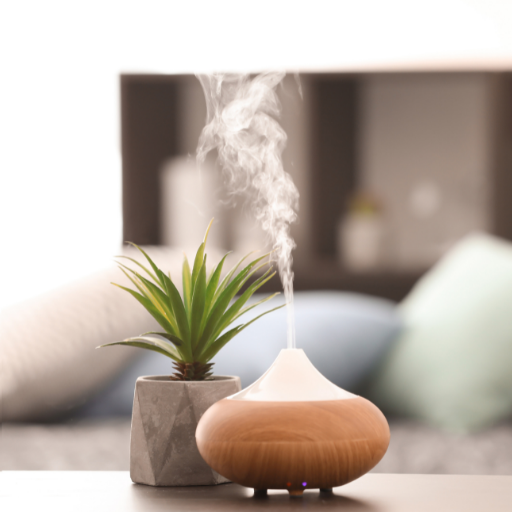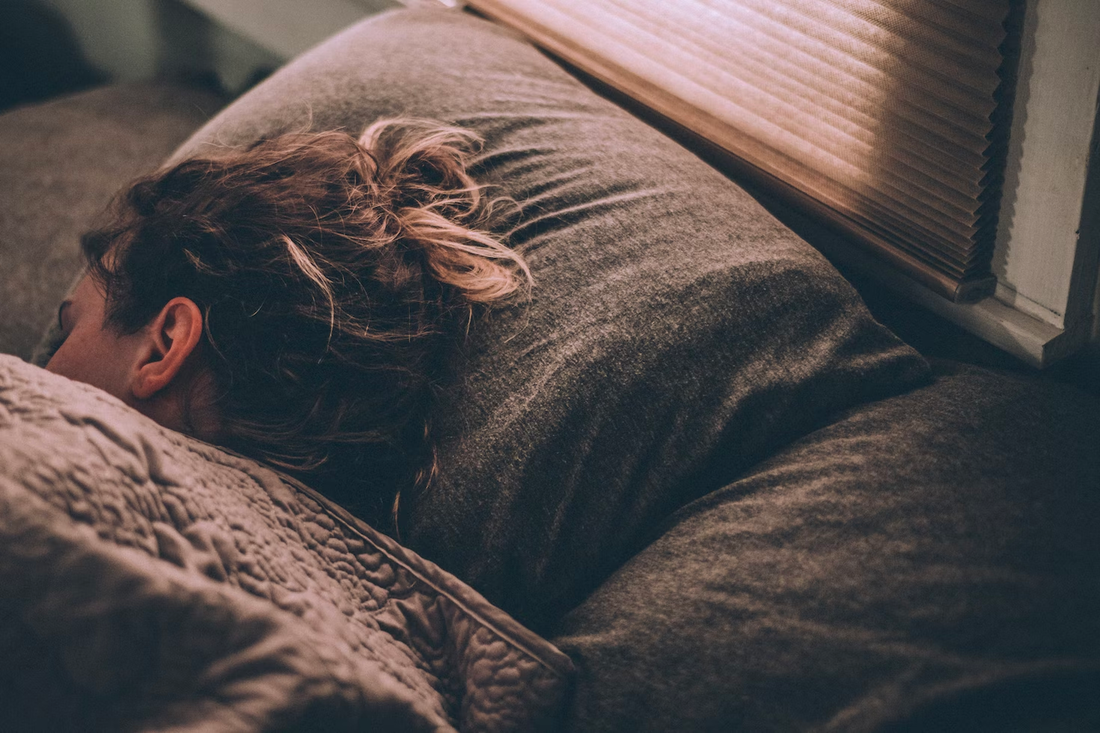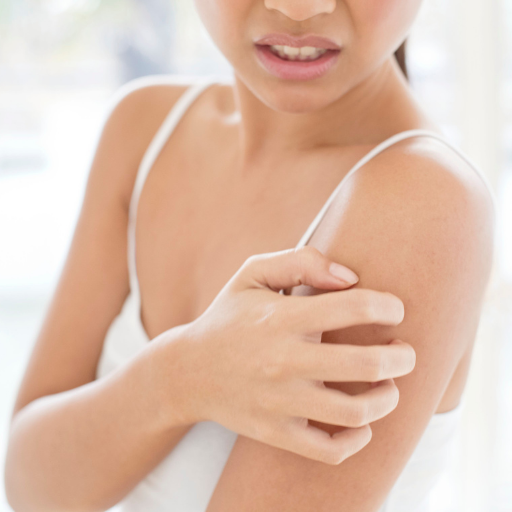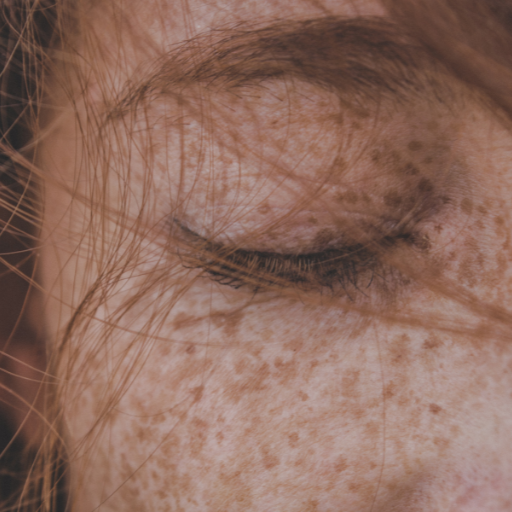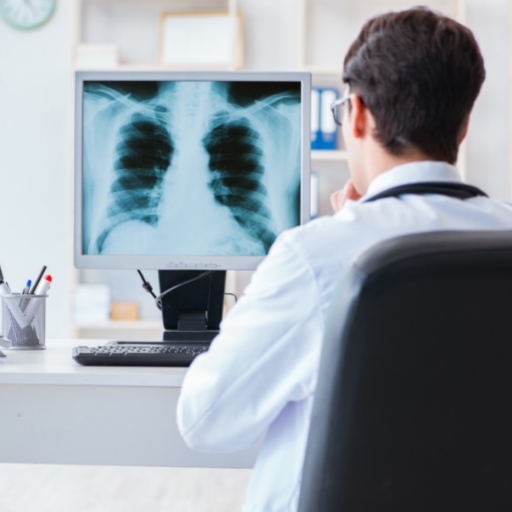Wellness Blog
The content on this blog is for general informational purposes only and is not a substitute for professional medical advice, diagnosis, or treatment. Always consult your healthcare provider before making changes to your health routine or taking new supplements.
How to sleep better: 4 simple tips for quality shut-eye
With constantly busy schedules, it has become easier for the average Australian adult to lose out on sleep, or not get enough of it. In fact, 4 out of 10 Australian adults experience poor sleeping quality (1) and sleep disorders like insomnia, sleep apnea, restless leg syndrome, circadian rhythm disorders are afflicting a large number of people (10). What's more, poor sleeping habits can potentially result in health complications affecting the heart, sugar levels, blood pressure, and more. Poor quality of sleep can also directly affect a person's mood, motivation and judgement.Tips on how to sleep betterHow to sleep better rests on lifestyle choices, such as eating well, exercising regularly, and having a good sleeping area. Do you have trouble sleeping? Here are some sleep tips on the several ways you can catch up on your daily quota of sleep:Find ways to relaxStress during bedtime can cause the heart rate and blood pressure to increase (2). Try taking a warm bath or a shower in dim light an hour or two before bed.Exercise regularlyRegular and moderate exercise improves sleep quality. Studies indicate that increased exercise leads to improvement in a person's sleep onset or the transition from wakefulness into sleep. To ensure you're staying asleep through the night, a good exercise routine can increase the amount of time a person can enjoy sleep.Prep better for sleepWhile exercise and diet can help in ensuring you get better sleep, it also helps to ensure that your bedroom, or sleeping area, is conducive for sleep close to bedtime. Here are some tips to ensure that your bedroom is conducive for restful sleep (3):Set the right temperatureBody temperature goes down when you sleep. For most people, the most comfortable range is within 18 and 20 degrees Celsius, or 65 and 69 degrees Fahrenheit (6).Block out lightIt's easier to sleep without being disturbed by external light. It helps to have quality window shades, like black-out curtains. You may also use an eye mask.Put down your devicesBlue light from devices with screens, as well as LED light bulbs can prevent the body from producing melatonin (6). Melatonin is a hormone produced by the body that regulates night and day sleep-wake cycles. It can help if you unplug at least an hour before heading off to sleep. Include a relaxation technique in your daily sleep prep to regulate your sleep-wake cycle.Staying away from your gadgets also trains your mind to associate bedtime with sleeping rather than using devices (7).Having a sleep scheduleSleep patterns can be affected by factors like age, gender, time of day or night, internal body clock, stress, temperature, light, exercise etc (9). Going to sleep at a regular time helps you achieve quality sleep. For adults aged 18 to 64 years old, at least 7 to 9 hours are recommended (8). Sleep problems at night arise when you sleep out of turn in the day (9). So avoid daytime naps. Conserve your long regular sleep hours for the night.Improve sleep quality with supplementationAshwagandha is a herb traditionally used in Ayurvedic medicine to promote and enhance sleep quality. Ashwagandha root extract is a natural compound with sleep-inducing potential, and has shown to improve deep sleep and reduce the time to fall asleep (5).Vitable's Ashwagandha Plus only uses high quality plant extracts with gentle solvents, ensuring it resembles the composition of the natural plant. Other than improving your sleep quality, the benefits of this natural sleep medicine supplement include relieving symptoms of stress and mild anxiety.Take your Ashwagandha tablets alongside Vitable's Magnesium Night Powder as a delicious drink. It is made with natural Passionflower extract to maintain refreshing sleep as well as premium grade and highly absorbable form of magnesium to support muscle relaxation, which is a key factor in getting quality sleep at night.For healthy sleep, consider signing up with Vitable. A supplement subscription with Vitable vitamins ensures that you get the specific nutrients that are right for you. Design your own daily vitamin pack with custom vitamins from Australia and pair them up with a healthy diet and lifestyle. Take advantage of our nationwide vitamin delivery to have your vitamins right at your doorstep.Find out more about other areas that the above supplements can help you with:Ashwagandha | Magnesium Night Powder *Always read the label. Follow the directions for use. If symptoms persist, talk to your health professional. Vitamin and/or mineral supplements should not replace a balanced diet.References: Danielle Pacheco. “Exercise and Sleep”. Sleep Foundation A OneCare Media Company. Published January 22, 2021 on https://www.sleepfoundation.org/physical-activity/exercise-and-sleep. Accessed on October 13, 2021. Sleep.Org. “How Sleep Works”. Sleep.Org. Published March 12, 2021 on https://www.sleep.org/how-sleep-works/. Accessed on October 13, 2021. Christopher E. Kline, Ph.D. “The bidirectional relationship between exercise and sleep: Implications for exercise adherence and sleep improvement”. National Center for Biotechnology Information. Published November 1, 2015 on https://www.ncbi.nlm.nih.gov/pmc/articles/PMC4341978/ . Accessed on October 13, 2021. Sleep.Org. “Why Do People Snore?”. Sleep.Org. Published March 25, 2021 on https://www.sleep.org/how-sleep-works/. Accessed on October 13, 2021. Vitable. "Ashwagandha". Vitable. Published n.d. on https://research.get.vitable.com.au/ashwagandha-plus. Accessed on October 18, 2021. John Hopkins Medicine. "Preparing Your Bedroom for a Great Night's Sleep". John Hopkins Medicine. Published n.d. on https://www.hopkinsmedicine.org/health/wellness-and-prevention/preparing-your-bedroom-for-a-great-nights-sleep. Accessed on October 18, 2021. HealthDirect. "Sleep". HealthDirect. Published August 2020 on https://www.healthdirect.gov.au/sleep. Accessed on October 18, 2021. Queensland Health. "10 steps to better sleep". Queensland Government. Last updated September 2019 at https://www.health.qld.gov.au/news-events/news/10-steps-to-better-sleep. Accessed on October 18, 2021. https://healthysleep.med.harvard.edu/healthy/science/what/sleep-patterns-rem-nrem Dec 2007 https://www.sciencedirect.com/science/article/abs/pii/S2352721816301292 Feb 2017
Learn moreWhat Is REM Sleep & How To Get More Of It
Do you know what REM sleep is? Or what healthy bedtime habits you should have to ensure a good night's sleep? Let's uncover everything you need to know about REM sleep together, so you feel energised from a good night's sleep every day.
Learn moreWhat are the effects of cosmetics on my skin?
Cosmetics are used to enhance physical appearance and improve skin quality. They generally come in various forms, including lotions, soaps, shampoos, ointments, creams and gels. Cosmetics have been around for much longer than we may think. Altering our appearance or accentuating certain features have been done for at least 10,000 years, and possibly a lot longer. Powdered lead sulfide or Kohl was used in ancient egypt to darken skin, while men and women in China stained their fingernails with different colours to identify social class in 3,000 B.C (1).Today, the use of cosmetics is widespread, in fact approximately $49.2 billion is generated by cosmetics sales in the United States alone (2). The power of cosmetics cannot be understated - one study had over 60% of respondents claiming that cosmetics had a positive impact on well-being, image, self-confidence and mood. A large proportion (40+%) also identified benefits in terms of social life, love life, family life, professional life and health (3).Effects of cosmetics on the skinDespite the ubiquitous use of cosmetics, regular cosmetic use may have negative effects on the skin.The areas of the body most affected by adverse reactions attributed to the use of cosmetics are head and neck (3). Types of complications include allergic reactions to the products, skin irritation, facial stinging, and redness.Vitamin supplements for skinDue to the possibility of negative side effects when using cosmetics, it is important to keep skin healthy to counteract any effects. While getting all the important nutrients you need to maintain skin health can be obtained through a healthy and well-rounded diet, some of us may fall short. You can ensure you receive sufficient daily nutrients through supplementation, when paired with healthy eating. Here are some of the vitamins and minerals you can consider as part of your custom vitamin pack to support skin health:ZincVitable's Zinc is in the form of zinc citrate which is one of the most easily absorbed forms and easily utilised by the body. There is growing clinical evidence for zinc supplementation and optimal skin health (2). Zinc supports collagen formation, which can promote healthier skin.IronIron not only helps the immune system fight illness, but also supports collagen formation. *Iron should only be taken if prescribed by your doctor.CollagenCollagen is the building block of skin tissue. Supplementation further aids in the formation of the right proteins for healthy skin.AstaxanthinAstaxanthin also supports healthy collagen levels while acting as a potent natural antioxidant and anti-inflammatory agent.CranberryCranberry supports and maintains collagen formation, which may support skin health.Vitamins B complexStudies show that B vitamins have the ability to promote proliferation and migration of human skin fibroblasts and keratinocytes (3). Our vitamin B Complex is manufactured in Australia. We produce it to the highest quality standards in a TGA-licensed facility, and they are then tested for purity and stability.BiotinBiotin plays a key role in enzymes for fatty acid synthesis (3). Skin cells depend on fatty acids to help produce the skin's natural oil barrier, providing protection from the sun and environmental toxins. Our Biotin tablet is vegan, free from added gluten and lactose, and non-GMO.You don't have to make a choice between cosmetics and skin. Instead, choose to live a healthy lifestyle while having the liberty to use natural cosmetic products to feel your best.Maintain healthy looking skin by customising a vitamin pack form Vitable Australia today. Your daily vitamins pack can be catered specifically to your skin and overall health needs, when paired with a healthy diet. And for the ultimate convenience, have it delivered straight to your doorstep through Vitable's vitamin delivery service.Find out more about other areas that the above supplements can help you with:Zinc | Iron | Collagen | Astaxanthin | B complex | Vitamin C | Biotin*Always read the label. Follow the directions for use. If symptoms persist, talk to your health professional. Vitamin and/or mineral supplements should not replace a balanced diet.References: Cosmetics Europe. You & Your Products. https://cosmeticseurope.eu/cosmetic-products/you-your-products/. Accessed Nov 14, 2021. 24 Powerful Cosmetic Industry Statistics [2021]: What's Trending in the Beauty Business? https://www.zippia.com/advice/cosmetics-industry-statistics/ Accessed Nov 9, 2021. Dr. Oliver Jone. The chemistry of cosmetics. Australian Academy of Science. Published on https://www.science.org.au/curious/people-medicine/chemistry-cosmetics. Accessed Nov 14, 2021 Braun, L., and Cohen,Marc. 2015. Herbs & Natural Supplements An Evidence-based guide Volume 2. 4th ed. Australia: Elsevier. Accessed Nov 14, 2021. Julian-Dario Rembe, Carolin Fromm-Dornieden, Ewa Klara Stuermer. Effects of Vitamin B Complex and Vitamin C on Human Skin Cells: Is the Perceived Effect Measurable? National Library of Medicine. Published May 31, 2018 on https://pubmed.ncbi.nlm.nih.gov/29672394/. Accessed Nov 14, 2021. Zempleni, J., Wijeratne, SSK., Hassan, YI. 2009. “Biotin”. BioFactors, 35. Published 1 (Jan): 36-46. doi:10.1002/biof.8. Accessed Nov 14, 2021.
Learn moreHair, skin, and nails: How they are connected and supplements that support their health
Skin is the body's largest organ (1). Whilst hair and nails are often considered for their cosmetic purpose, their bodily purpose and connection to our skin are more than skin-deep. Let's take a look at the connection between hair, skin, and nails in more detail.SkinAside from protecting our muscles, bones, nerves, and blood vessels, our skin also stops harmful microorganisms and material from entering our bodies. It acts as the body's first line of defense, and prevents the loss of life-sustaining fluids like blood and water (2). Our skin is made up of three layers. The epidermis is the tough, outer layer. The various cells located here give our skin their particular colouring, help protect our body against infection, and produce keratin, a basic component of hair, skin, and nails. The dermis, or second layer, contains connective tissue, nerve endings, hair follicles, and sweat glands. Thirdly, the subcutaneous fat layer which contains a network of collagen and fat cells. This layer helps conserve the body's heat and protects the body from further injury by acting as a shock absorber (3).HairThe hair on your head isn't just there just there to embrace the latest hairstyles. Generally speaking, our hair keeps us warm by preserving heat in our bodies. The hair in our nose, ears, and around the eyes also protect these sensitive areas from dust and other small particles from getting in. Eyebrows and eyelashes, in particular, protect our eyes by decreasing the amount of light and particles that go into them. NailsIt might not seem like it, but our nails grow out from the deep folds of skin at our fingers and toes. Our fingernails and toenails support the sensitive tips of our fingers and toes (4). Nails are useful in helping us pick up objects, scratch an itch, or untie a knot.The connection among hair, skin, and nailsThe trifecta of skin, hair and nails form a comprehensive first line of defense for our body against any outside harm. In addition, keratin is a key component in our hair and nails (5). A process called keratinization forms our hairs and nails as they push out from under the skin. Following this, a lot of the same nutrients that protect our skin are also needed to protect our hair and nails.Healthy hair, skin, and nails through supplementsWhile taking in nutrients primarily happens through a healthy diet, you may not always get the vitamins and minerals you need from food alone. Taking supplements is another way to ensure that you can assist your hair, skin, and nail health by helping incorporate important nutrients. Some of the vitamins and minerals that you can consider to support hair, skin, and nail health include:CollagenA protein that is essential in giving structure to the skin, hair, nails, bones, ligaments and cartilage. Collagen supplementation may improve elasticity in the skin, support hydration, and maintain collagen formation (13).BiotinBiotin plays a role in maintaining the state of vitamins and minerals in the body. Because of this, it helps improve hair health, nail strength, and skin health (14).ZincZinc supports collagen formation and health, allowing it to support skin health, and strong nails and hair.AstaxanthinA potent, natural antioxidant that supports collagen formation and elasticity for healthy hair, skin, and nails.Vitamin CAn abundance of vitamin C is found in the epidermis and dermis (15). It plays an important role in collagen formation and health, which is necessary for healthy hair, skin, and nails.B complexB vitamins play a role in protein synthesis in the body, maintaining the state of minerals in the body which are crucial for hair, skin and nails, as well as supporting skin health.CranberryCranberry supplement supports collagen formation and supports the state of vitamins in the body. It also maintains skin health and aids in skin repair and regeneration.Vitable Australia offers a premium vitamin subscription service in Australia. Visit our website to create a customised vitamin plan that supports your skin, hair and nail health. And with our vitamin delivery service, you can easily have your daily vitamin packs delivered right to your doorstep!Find out more about other areas that the above supplements can help you with:Collagen | Biotin | Zinc | Astaxanthin | Vitamin C | B complex | Cranberry*Always read the label. Follow the directions for use. If symptoms persist, talk to your health professional. Vitamin and/or mineral supplements should not replace a balanced diet.References: National Human Genome Research Institute. "Organ".National Human Genome Research Institute. Published (n.d.) on https://www.genome.gov/genetics-glossary/Organ . Accessed 1 November 2021 Rady Children's Hospital San Diego. "Body Basics: Skin, Hair, and Nails". Rady Children's Hospital San Diego. Published (n.d.) on https://www.rchsd.org/health-articles/skin-hair-and-nails/ . Accessed 2 November 2021 Stanford Children's Health. "Anatomy of the Skin". Stanford Children's Health. Published (n.d.) on https://www.stanfordchildrens.org/en/topic/default?id=anatomy-of-the-skin-85-P01336 . Accessed 2 November 2021. Better Health. "Nails - fingernail and toenail problems". Better Health. Published (n.d.) on https://www.betterhealth.vic.gov.au/health/conditionsandtreatments/nails-fingernail-and-toenail-problems . Accessed 2 November 2021. Riley, Jan. "The Keratin Trilogy: Skin, Hair and Nails". Ausmed. Published 12 November 2015 on https://www.ausmed.com/cpd/articles/what-is-keratin . Accessed 2 November 2021. Mayo Clinic. "Skin care: 5 tips for healthy skin". Mayo Clinic. Published (n.d.) on https://www.mayoclinic.org/healthy-lifestyle/adult-health/in-depth/skin-care/art-20048237 . Accessed 2 November 2021. Mayo Clinic. "Skin care: 5 tips for healthy skin". Mayo Clinic. Published (n.d.) on https://www.mayoclinic.org/healthy-lifestyle/adult-health/in-depth/skin-care/art-20048237 . Accessed 2 November 2021. Mayo Clinic. "Skin care: 5 tips for healthy skin". Mayo Clinic. Published (n.d.) on https://www.mayoclinic.org/healthy-lifestyle/adult-health/in-depth/skin-care/art-20048237 . Accessed 2 November 2021. Mayo Clinic. "Skin care: 5 tips for healthy skin". Mayo Clinic. Published (n.d.) on https://www.mayoclinic.org/healthy-lifestyle/adult-health/in-depth/skin-care/art-20048237 . Accessed 2 November 2021. NIH News in Health. "Keep Your Skin Healthy: Protecting Your Outer Self". National Institutes of Health. Published November 2015 on https://newsinhealth.nih.gov/2015/11/keep-your-skin-healthy . Accessed 2 November 2021. American Academy of Dermatology. "10 Skin Care Secrets for Healthier-Looking Skin". American Academy of Dermatology. Published (n.d.) on https://www.aad.org/public/everyday-care/skin-care-secrets/routine/healthier-looking-skin . Accessed 2 November 2021. Mayo Clinic. "Skin care: 5 tips for healthy skin". Mayo Clinic. Published (n.d.) on https://www.mayoclinic.org/healthy-lifestyle/adult-health/in-depth/skin-care/art-20048237 . Accessed 2 November 2021. Vitable. “Collagen”. Vitable. Published (n.d.) on https://research.get.vitable.com.au/collagen. Accessed 14 November 2021. Vitable. “Biotin”. Vitable. Published (n.d.) on https://research.get.vitable.com.au/biotin. Accessed 14 November 2021. Vitable. “Vitamin C Plus”. Vitable. Published (n.d.) on https://research.get.vitable.com.au/vitamin-c-plus. Accessed 14 November 2021. Tri-City Medical Center. " B Vitamins: Your Secret to Good Skin Health". Tri-City Medical Center. Published (n.d.) on https://www.tricitymed.org/2018/08/b-vitamins-secret-good-skin-health/. Accessed 14 November 2021.
Learn moreThe fascinating link between sleep and fitness
Sleep and fitness are undeniably key aspects of overall health. However, it's a lesser-known fact that they also have a mutually beneficial relationship. Maintaining a disciplined exercise routine can contribute to a better night's sleep while getting enough shuteye can keep your energy levels up throughout the day (1).Doctors have long studied the fascinating link between sleep and fitness, and how they reinforce one another. Let's understand in more detail how the two are related, and what you can do to enhance your sleep and fitness goals.How are sleep and fitness connected?Several studies point out that exercise can help you fall asleep more quickly; what's more, it can also enhance sleep quality (1). You might have noticed how it's so much easier to fall asleep when you've had a long day at work or after you've done an intense physical activity. Studies show that doing moderate to vigorous exercise during the day reduces sleep onset time or the time it takes to fall asleep (2). Your body temperature rises during exercise and drops afterwards. The shift in temperature is similar to a body change that happens before you fall asleep (3). Additionally, exercise tends to reduce stress in the body and decompress the mind, setting the conditions for sleep. More importantly, moderate-intensity aerobic exercise increases the duration of slow-wave sleep (1). This type of deep sleep allows the body to repair itself.Doctors also suggest that exercise may help restore your internal body clock (3). Normally, a person feels alert during the day and sleepy at night. However, some people have disrupted internal body clocks. The disruption usually happens in individuals who work night shifts. This group of people may find that exercise can help reset their circadian rhythms and aid them in falling asleep during their intended time.How does sleep affect fitness?Conversely, getting enough sleep can also contribute to better fitness. Sleep is a foundation for good physical and mental health. When you're properly rested, you are in a better position to take on the day's challenges. Sleep is linked to higher energy levels, better overall mood, and sharper cognitive functions (1). If you pulled an all-nighter, you might find it harder to concentrate or become more irritable. The daytime sleepiness and overall fatigue might dampen your motivation to work out, launching a vicious cycle of physical inactivity and sleep deprivation.Since sleep and fitness are inextricably linked, it's best to pay close attention to how you are optimising them. If you're having trouble with either sleep or fitness, a healthy and well-rounded diet containing all the nutrients you need can help. If you want to ensure that you achieve your daily recommended amount of these vitamins, you can consider supplementation. Here are the top supplements for energy that you can include as part of your vitamin pack:IronBy transporting oxygen to the cells, iron supports energy production at the cellular level. At Vitable, our iron supplement is paired with vitamin C to enhance absorption by the body. *Iron should only be taken if prescribed by your doctor.AshwagandhaAshwagandha is a plant used in traditional Indian medicine. Because of its well-known restorative properties, ashwagandha is a nutrient which may support sleep, fitness, and energy levels. Vitable's premium ashwagandha formula is specially formulated to relieve symptoms of stress and improve sleep quality.MagnesiumMagnesium is an essential mineral that plays an important role in physical fitness. Vitable's magnesium benefits include reducing muscle cramps, enabling muscle relaxation, and supporting energy production.B complexB complex is a group of B vitamins that play an important role in optimal body function. Vitable harnesses the ability of each B vitamin to support energy production as well as a healthy stress management response that may help your body to sleep better.Acetyl L-carnitineIf you're looking for ways on how to improve fitness, consider having acetyl L carnitine. The acetylated and bioavailable form of L-carnitine transports long-chain fatty acids into the cell, supporting energy production. Vitable's ALC supplement can improve energy status and decrease oxidative stress, helping you power through your workout.Vitamin CBeyond strengthening the immune system, vitamin C can also be considered an energy booster. It acts as a cofactor for the process that generates metabolic energy.Vitamin B12Also known as cobalamin, vitamin B12 metabolises carbohydrates, fats, and proteins into a form of energy that the cells can use. Vitable's single-dose vitamin B12 formula assists red blood cell production and converts food into energy.If you're looking for custom vitamin packs for sleep and fitness, look no further than Vitable vitamins. We offer a custom vitamin subscription in Australia where you can mix and match vitamin packs depending on your needs and health goals. What's more, we also offer vitamin delivery services! Find out more about other areas that the above supplements can help you with:Iron | Ashwagandha | Magnesium | B complex | Acetyl L-carnitine | Vitamin C | Vitamin B12*Always read the label. Follow the directions for use. If symptoms persist, talk to your health professional. Vitamin and/or mineral supplements should not replace a balanced diet.References: Sleep.org (2021). How Exercise Affects Sleep. https://www.sleep.org/exercise-affects-sleep/ Accessed November 07 2021 Sleep Foundation. (2021). Exercise and Sleep. https://www.sleepfoundation.org/physical-activity/exercise-and-sleep Accessed November 07 2021 Sleep Foundation. (2020). Exercise and Insomnia. https://www.sleepfoundation.org/insomnia/exercise-and-insomnia Accessed November 07 2021
Learn morePersonalised daily vitamins to increase your antioxidant intake
You might often hear the common trope ‘vitamins are just expensive urine'. We're here to share the good news and debunk the myth, because in fact, good quality vitamins and supplements are not just expensive urine. There is extensive evidence to show that vitamins provide additional support in many areas of health. Read on to learn more about why your vitamins are not a waste of your hard earned money. But first, what are vitamins?Vitamins are organic compounds that the body uses to carry out everyday functions (1). In order to thrive, run, jump, exercise, be creative, sleep, work and laugh we need adequate vitamin intake. The tricky bit? Vitamins and nutrients can only be obtained from food, supplementation or sunlight as the human body is unable to produce them on its own. Vitamins, especially water-soluble ones, require regular replenishmentVitamins are classified as either water or fat-soluble. Water-soluble vitamins, like vitamin C and B complex, cannot be stored by the body since they dissolve in water. On the other hand, fat-soluble vitamins, like vitamins A, D, E, and K, that dissolve in fat tend to accumulate in the body. These vitamins can be stored in the liver and body fat for a long time unlike their water-soluble counterparts (2). Since any excess is passed through urine, water-soluble vitamins require regular replenishment. While it's possible for your diet to provide all the nutrients your body needs, there could be many instances where your food choices do not always align with your vitamin requirements. So, do we need vitamins?Most often, yes! It's quite uncommon for Australians to consistently eat a balanced diet with plenty of fruits and vegetables, while incorporating all the necessary micronutrients. According to the Australian Bureau of Statistics, only one in 13 adults eat enough fruits and vegetables, while 94% of children do not have enough vegetables in their diet (3).Since it may not be possible to get all the key vitamins and minerals from food alone, taking vitamin supplements to address any deficiencies may be worth considering. This applies even more so for water-soluble vitamins that do not get stored in the body. Vitamin C or ascorbic acid, for instance, is one of the body's most important water-soluble antioxidant substances. Given its role in strengthening the body's immune defenses and neutralising free radicals, it's crucial that we prioritise replenishing it frequently. While vitamins can help with dietary deficiencies, that doesn't mean that they are a replacement for a balanced diet. Vitamins tend to work best when they are paired with a healthy and varied diet that features items from the five food groups: vegetables and legumes; fruits; grains and cereals; lean meat, poultry, fish, eggs, beans, tofu, nuts, and seeds; and milk, cheese, and yoghurt (4).Why do vitamins make my urine yellow?People commonly use the argument that “vitamins are just expensive urine” when they notice a fluorescent yellow colour after taking their B vitamins. This is not a cause for concern, or an indication of vitamins not being absorbed. One of the eight key B vitamins is riboflavin, which is a nutrient that helps the body metabolise fats, proteins and carbohydrates into glucose for energy. However, it also has a yellow-green fluorescent pigment, which is what causes the bright yellow urine. Fortunately, this isn't a sign of wasted vitamins, it just means your body is absorbing riboflavin as it should!To truly understand how vitamins are not flushed directly through the body, it's important to identify the purpose of urine. Urine accumulates in the kidneys once the body has finished purifying the blood. Nutrients must still run through the human body and essential nutrients will be assimilated prior to excretion. Vitamin deficiencies may occurAnother counterargument to the “vitamins are just expensive urine” view is that some individuals struggle with vitamin deficiencies due to gaps in their diet or poor lifestyle choices. According to the Australian Health Survey, 73% of females and 51% of males aged two years and above did not meet calcium requirements from the food they eat (5). Calcium is an essential mineral making up our bones and teeth. Without enough calcium, the bones can weaken and become susceptible to fractures.And even if you meticulously follow a balanced diet, vitamin deficiencies may still occur at certain stages of life. Pregnant women, for one, are at risk of vitamin deficiencies since they have to support the growing nutrient requirements of their baby (6).Without these critical micronutrients, the capacity of the mother to sustain the pregnancy may be put at risk. The same can be said for the fetus who requires micronutrients for sound and healthy organ development (6) For instance, deficiencies in folate, might affect normal fertilisation and embryo development (6). Similarly, a deficiency in vitamin E, zinc, copper, and iodine may be linked with early reproductive failure and miscarriage (6). In these situations, vitamins are not just expensive urine. According to the Nutrient Reference Values (NRV) for Australia and New Zealand, the aforementioned vitamins are recommended as additional supplements (7).Pregnant women in particular may benefit from folate supplements to reduce the risk of their baby developing neural tube defects (8). Also known as folic acid, folate is a vitamin under the B family that plays an important role in the fetus development, specifically the neural tube that would later become the brain, spinal cord, and supporting bones. Taking folate before conception and during the first weeks of pregnancy has been shown to prevent seven out of ten cases of neural tube defects9. If you're planning a pregnancy, Better Health Channel by the State Government of Victoria recommends consuming more folate early on since the neural tube forms and closes in the first four to six weeks of pregnancy (9). More often than not, by the time women suspect they're pregnant, the window to consume more folate for healthy fetal development may have already passed (9).Who's at risk of vitamin deficiency?In addition to pregnant and breastfeeding women, other individuals who may be at risk of vitamin or mineral deficiency (2) include: People who smoke or drink heavily People on strict diets Vegetarians Women with heavy periods People with food allergies People with pre-existing conditions that prevent proper nutrient absorption Given the possibility that you may not always get the vitamins and minerals you need from your diet, it's now easier to see why the argument “a multivitamin is just expensive urine” is not always accurate! It's always important to consider the person's unique situation and health factors to see if they would benefit from supplementation. Always speak to your doctor if you're considering supplementation. Vitamins and supplements can provide targeted health support and optimise the effects of positive lifestyle choices. If you want to move even further on the path to good health, you may want to consider supplementation. Vitable offers custom vitamin packs in Australia. These personalised vitamins can be tailored to your unique health goals and needs. For your vitamin subscription, you can mix and match multivitamin packs depending on what you need. We even have vitamin delivery covered!Check out our vitamin selection right here.References: Harvard School of Public Health. Vitamins and minerals. https://www.hsph.harvard.edu/nutritionsource/vitamins/ Accessed November 07 2021 Better Health. Vitamins and minerals. https://www.betterhealth.vic.gov.au/health/healthyliving/Vitamins-and-minerals Accessed November 07 2021 Australian Department of Health. Food and nutrition. https://www.health.gov.au/health-topics/food-and-nutrition Accessed November 07 2021 Healthdirect. A balanced diet. https://www.healthdirect.gov.au/balanced-diet Accessed November 07 2021 Australian Bureau of Statistics. Australian Health Survey: Usual Nutrient Intakes. https://www.abs.gov.au/statistics/health/health-conditions-and-risks/australian-health-survey-usual-nutrient-intakes/latest-release Accessed November 07 2021 National Institutes of Health. (2016). Micronutrient deficiencies in pregnancy worldwide: health effects and prevention. https://www.ncbi.nlm.nih.gov/pmc/articles/PMC4927329/ Accessed November 07 2021 Nutrient Reference Values for Australia and New Zealand. https://www.nrv.gov.au/nutrients Accessed December 14, 2021 Better Health. Vitamins - common misconceptions. https://www.betterhealth.vic.gov.au/health/healthyliving/vitamins-common-misconceptions Accessed November 07 2021 Better Health. Folate for pregnant women. https://www.betterhealth.vic.gov.au/health/healthyliving/folate-for-pregnant-women Accessed November 07 2021
Learn moreVitamins for nail health: Tips on creating a vitamin plan to support healthy nails
Whilst nail aesthetics have become an element of a beauty ritual for many, their functional role in health and wellbeing is often forgotten about. Nails protect the skin on your toes and fingers, as well as helping you perform basic activities such as scratching a surface or holding an item more tightly. But did you know, nails are an indicator of health in the body? Any unusual characteristics of certain parts of the nail may mean something's going on inside the body. These unusual characteristics show up as nail discoloration, unevenness, and brittleness (1). Other factors such as extreme weather can also cause nails to be brittle and split (2).To help maintain nail health, we need to be conscious of how we can take care of them from the inside out. Aside from clipping nails properly, moisturising, and practicing proper hygiene (1), it's also good to support nail health from the inside. Nutrients provide the body with what it needs to minimise deficiencies and boost bodily functions to prevent illnesses and infections. Here are some tips on how to make a vitamin plan for your nails.Make an assessment of your bodyThe first step to maintaining nail health is to conduct your own assessment. Do you see any unusual growth, colour, or structure in your nails (3)? Do they crack or chip more often, or are they sensitive to touch in certain parts? Answering these questions may point out what your body is experiencing.If these symptoms are present, speak to your healthcare professional to help understand their causes and impacts, as well as work out next steps. This is particularly important if symptoms persist, and you require additional tests to confirm your condition.Get to know some of the nutrients for nail healthAfter the assessment, it's good to know what possible actions you can do to support healthy nails. Adding exercise and a proper diet are some of the basic steps which can kickstart your healthy lifestyle. For your vitamin plan, it's about choosing the nutrients that help support nail health.Some of the sources of vitamins and minerals that help nail health are iron, cranberry, collagen, and biotin. Let's look at the science behind these nutrients to understand why they're good for your nails:IronIron is an essential mineral for various functions like energy production, oxygen transport, and others (4). It supports nail health by playing a role in collagen formation.Iron deficiency results in spoon nails, which occur when the nails arch inwards and become brittle (5). To maintain nail health, at least 8 mg/day of iron is recommended for daily intake (6). Foods like lean meat and seafood, nuts, beans, and fortified food have high amounts of iron which you can add to your diet.*Iron should only be taken if prescribed by your doctor.CranberryCranberries contain silicic acid which supports nail health. A study showed that continuous intake improved brittle nails and strengthened them (7). Another study saw that silicic acid also helps in the maintenance of the nail's connective to keep it healthy (8).Vitamin C which is also present in cranberries enables nail health by supporting collagen formation which is essential for nail formation to keep it strong (9). Vitamin C deficiency also shows signs of nail brittleness (10).CollagenCollagen is one of the key components of nails. Patients who have taken collagen supplements have seen increased nail growth, fewer broken nails, and improved brittle nail conditions (12). Meats with connective tissue in them like brisket and chuck steak are rich in collagen, as well as bone broth (13). It can be sourced from supplements or increased intake of collagen production boosting food like meat, dairy, nuts, and seeds (13).BiotinLastly, biotin or vitamin B7 is one of the recommended nutrients for brittle nails (14). Multiple studies have proven that patients improved their brittle nails through the use of biotin supplements (15, 16). Aside from its help with nail health, it's present in fatty acid, glucose, and amino acid metabolism and cell signaling and its deficiency can cause nail brittleness (17). Foods like animal organs, eggs, seeds, and nuts are good sources of biotin and 30 micrograms/day of it is recommended (18).Put together your own vitamin planThe next step to maintain and support your nail health is to find the best way to get the vitamins that you need. It is always best to get the vitamins that you need from your diet, but in cases where you can't get all the nutrients you need from diet, supplements can help support your intake.Eating healthy and choosing the right supplements for your vitamin plan can help you improve your nail health.Vitable offers custom supplements to fit your needs and lifestyle. Choose from a selection of supplements to support not only nail health but also areas of health. Your daily vitamin packs contain only the vitamins that you need that come with vitamin delivery services to anywhere in Australia.Find out more about other areas that the above supplements can help you with:Iron | Cranberry | Collagen | Biotin*Always read the label. Follow the directions for use. If symptoms persist, talk to your health professional. Vitamin and/or mineral supplements should not replace a balanced diet.References: "Nails - fingernail and toenail problems". Better Health Channel. Published on https://www.betterhealth.vic.gov.au/health/conditionsandtreatments/nails-fingernail-and-toenail-problems. Accessed Oct. 27, 2021 Farran, L., Ennos, A., and Eichhorn, S. "The effect of humidity on the fracture properties of human fingernails". The Journal of experimental biology. Published Dec. 2008 on https://journals.biologists.com/jeb/article/211/23/3677/17955/The-effect-of-humidity-on-the-fracture-properties. Accessed Oct. 27, 2021 Singal, A., and Arora, R. "Nail as a window of systemic diseases". Indian dermatology online journal. Published Apr. 2015 on https://www.idoj.in/article.asp?issn=2229-5178;year=2015;volume=6;issue=2;spage=67;epage=74;aulast=Singal. Accessed Oct. 27, 2021 “Iron”, National Institute of Health: Office of Dietary Supplements. Published on https://ods.od.nih.gov/factsheets/Iron-HealthProfessional/. Accessed Oct. 27, 2021 Higdon, J., Drake, V., Delage, B., and Wessling-Resnick, M. “Iron”. Oregon State University: Linus Pauling Institute. Published May. 2016 on https://lpi.oregonstate.edu/mic/minerals/iron. Accessed Oct. 27, 2021 "Iron". Australian National Health and Medical Research Council: Nutrient Reference Values. Published Sep. 22, 2017 on https://www.nrv.gov.au/nutrients/iron. Accessed Oct. 27, 2021 Lassus A. "Colloidal silicic acid for oral and topical treatment of aged skin, fragile hair and brittle nails in females". The Journal of international medical research. Published Aug. 1993 on https://journals.sagepub.com/doi/10.1177/030006059302100406. Accessed Oct. 27, 2021 Barel, A., Calomme, M., Timchenko, A., De Paepe, K., Demeester, N., Rogiers, V., Clarys, P., and Vanden Berghe, D. "Effect of oral intake of choline-stabilized orthosilicic acid on skin, nails and hair in women with photodamaged skin". Archives of dermatological research. Published Oct. 26, 2005 on https://link.springer.com/article/10.1007%2Fs00403-005-0584-6. Accessed Oct. 27, 2021 Pullar, J., Carr, A., and Vissers, M. "The Roles of Vitamin C in Skin Health". Nutrients. Published Aug. 12, 2017 on https://www.mdpi.com/2072-6643/9/8/866. Accessed Oct. 27, 2021 Maxfield, L., Crane, J. "Vitamin C Deficiency". StatPearls. Published Jan. 2021 on https://www.ncbi.nlm.nih.gov/books/NBK493187/. Accessed Oct. 27, 2021 "Vitamin C". Australian National Health and Medical Research Council: Nutrient Reference Values. Published Sep. 22, 2017 on https://www.nrv.gov.au/nutrients/vitamin-c. Accessed Oct. 27, 2021 Hexsel, D., Zague, V., Schunck, M., Siega, C., Camozzato, F., and Oesser, S. "Oral supplementation with specific bioactive collagen peptides improves nail growth and reduces symptoms of brittle nails". Journal of cosmetic dermatology. Publishe Dec. 2017 on https://onlinelibrary.wiley.com/doi/10.1111/jocd.12393. Accessed Oct. 27, 2021 "Collagen". Harvard T.H Chan School of Public Health: The Nutritional Source. Published on https://www.hsph.harvard.edu/nutritionsource/collagen/. Accessed Oct. 27, 2021 "Fingernails: Do's and don'ts for healthy nails". Mayo Clinic: Adult Health. Published Oct. 16, 2021 on https://www.mayoclinic.org/healthy-lifestyle/adult-health/in-depth/nails/art-20044954. Accessed Oct. 27, 2021 Hochman, L., Scher, R., and Meyerson, M. "Brittle nails: response to daily biotin supplementation". Cutis. Published Apr. 1993 on https://pubmed.ncbi.nlm.nih.gov/8477615/. Accessed Oct. 27, 2021 Colombo, V., Gerber, F., Bronhofer, M., and Floersheim, G. "Treatment of brittle fingernails and onychoschizia with biotin: scanning electron microscopy". Journal of the American Academy of Dermatology. Published Dec. 1990 on https://linkinghub.elsevier.com/retrieve/pii/019096229070345I. Accessed Oct. 27, 2021 “Biotin”, National Institute of Health: Office of Dietary Supplements. Published on https://ods.od.nih.gov/factsheets/Biotin-HealthProfessional/. Accessed Oct. 27, 2021 "Biotin". Australian National Health and Medical Research Council: Nutrient Reference Values. Published Sep. 22, 2017 on https://www.nrv.gov.au/nutrients/biotin. Accessed Oct. 27, 2021
Learn moreThe top 5 daily vitamins for bone health
Surprisingly, in Australia most self-reported incidents of injured or broken bones have been from those under 75 years of age (2). This statistic underlines the importance of taking care of your bone health as early as possible.Bones, alongside muscles and joints, provide structure to the body and support bodily movement (1). They also protect internal organs from external forces. Bone marrow, which is found inside the bones, contains cells that produce red and white blood cells.You can get a headstart on caring for your bones by exercising regularly and through proper nutrition as well as a well-balanced diet. Daily supplements can also assist in providing additional nutrients for the body to maintain and support bone health when paired alongside a healthy diet.With that, here are some tips you can put into practice when assembling daily vitamins for healthy bones.Know the nutrients that support bone healthBy knowing how nutrients interact with the body, it can be easier to understand which can help support and maintain bone health. Some of the nutrients to add to your daily vitamins to keep the bones stronger are magnesium, calcium, vitamin C and D, and cranberry.MagnesiumMagnesium is essential for muscles, nerves, blood sugar regulation, and for bones to function properly. It also supports bone health by playing a role in the structural development of bones (3).More than half of magnesium in the body is found in the bones (4). Magnesium is particularly important in keeping bone density high, especially among older women who are more prone to bone-related conditions. Having a higher bone density reduces the risk of such injuries as well as illnesses (6, 7).CalciumAs the most abundant mineral in the body, calcium is found mostly in the bones and teeth. It's also important for bone structure, cell signaling, stabilisation of protein, and enzymes for different bodily functions (8).It supports and maintains bone health and strength through bone remodeling that helps in bone growth, damage repair, and sustains serum calcium levels (9).Higher consumption of calcium can help to maintain bone density, which reduces the possibility of bone injuries and illnesses, especially among older people (10, 11).Vitamin CVitamin C is an essential nutrient that is mostly sourced through food as the body is not able to produce it (12). It's used for the synthesis of collagen as well as other enzymes and is also known as an antioxidant that prevents cell damage (13).Supplementation with vitamin C can help maintain bone health though the prevention of bone loss (14). A study also shows that through supplementation, patients have been seen with significantly faster bone healing compared to patients without vitamin C supplements (15). It's also connected closely to collagen where their link enables bones to be stronger when vitamin C intake is increased (16).Vitamin DVitamin D is popularly known for being sourced from the body's reaction with sunlight. It helps calcium through absorption and maintenance of serum calcium and phosphate levels for normal bone mineralisation (17). It's also important for bone growth and repair, and also prevents bone weakness and brittleness with the help of calcium (17).Like most bone health nutrients, vitamin D increases bone mineral density which reduces the risk of weak bones in later life (17). It also prevents bone injury by making bones stronger and its effects on muscle function (18). Vitamin D deficiency can impact the formation of bone structure and shape as there's very little of it to regulate calcium and phosphate (19).CranberryFruits are a refreshing way to introduce nutrients in the body. Cranberries are a good source of both vitamin C and calcium which support bone health through bone healing (20). Its vitamin C content helps in preventing bone loss (14), while calcium aids in lowering the risk of osteoporosis (11). Cranberry can also be consumed in supplement form where it supports bone health by maintaining bone mineralisation.Find food sources of those nutrientsWhere possible, it is always best to maintain your intake of vitamins and nutrients through dietary choices. Aside from supplementation, knowing which food sources can help you achieve your recommended daily intake of nutrients is very beneficial. Here are some top food sources for nutrients that can help support bone health:MagnesiumMagnesium is mostly found in seeds and nuts such as chia seeds, almonds, cashews, and pumpkin seeds. It can also be sourced from grains, beans, and cereals through oatmeal, black beans, rice, and bread. The Australian National Health and Medical Research Council recommends at least 400 mg/day of magnesium for grown adults (21).CalciumSome of the foods that contain calcium are daily products such as milk, cheese, and dairy (22). Other foods like cranberry, sardines, and tuna with bones, tofu and soybeans, and spinach are also great high-calcium food options. The Australian National Health and Medical Research Council recommends 1,000 mg/day of calcium for Australians to consume (22).Vitamin CFruits and vegetables can be good sources of vitamin C, including oranges, grapefruit, kiwi, and berries like cranberries, and vegetables like broccoli, spinach, and brussels sprouts.The Australian National Health and Medical Research Council recommends at least 45 mg/day of vitamin C is included in a normal diet (23).Vitamin DAs little as 5 micrograms a day of vitamin D is what is recommended for intake (24). Adequate vitamin D levels can be obtained through appropriate and healthy sun exposure, although overexposure to sunlight can be harmful to your skin. There are food sources of vitamin D including fatty fish like salmon, tuna, and mackerel. Fortified milk and cereals can also be good sources of vitamin D.Know what your body needsThe body lets you know if it lacks certain nutrients for it to function. Signs like fatigue and weight loss can be indicators of a nutrient shortfall (25). If you experience any of these symptoms, it is best to speak with your healthcare practitioner to determine which vitamins you need, how you can improve bone health as well as ensure you do not have a more serious health condition.Create your own vitamin packOnce you understand which vitamins and minerals are needed to support bone health, the next step is to incorporate them into your diet or consider supplementation. Food sources are still the best but for instances where the recommended daily intake cannot be met, supplements can support your daily intake of nutrients to support bone health.Vitable has made crafting your own daily vitamins easier with its custom vitamin packs. You can choose from a selection of vitamins that not only supports your bone health but other areas of health. It is the preferred create-your-own vitamin subscriptions in Australia that offers a wide selection of minerals to fit your lifestyle. We'll even have your vitamin packs delivered right to your doorstep with our vitamin delivery services!Find out more about other areas that the above supplements can help you with:Magnesium | Calcium | Vitamin C | Vitamin D*Always read the label. Follow the directions for use. If symptoms persist, talk to your health professional. Vitamin and/or mineral supplements should not replace a balanced diet.References: "Bones". Better Health Channel. Published on https://www.betterhealth.vic.gov.au/health/conditionsandtreatments/bones. Accessed Oct. 26, 2021 "Osteoporosis". Australian Institute of Health and Welfare. Published Mar. 15, 2021 on https://www.aihw.gov.au/reports/chronic-musculoskeletal-conditions/osteoporosis/contents/what-is-osteoporosis. Accessed Oct. 26, 2021 “Magnesium”, National Institute of Health: Office of Dietary Supplements. Published on https://ods.od.nih.gov/factsheets/Magnesium-HealthProfessional/. Accessed Oct. 26, 2021 Gröber, U., Schmidt, J., and Kisters, K. “Magnesium in Prevention and Therapy”. Nutrients. Published Sep. 23, 2015 on https://www.mdpi.com/2072-6643/7/9/5388. Accessed Oct. 26, 2021 Tucker K. "Osteoporosis prevention and nutrition". Current osteoporosis reports. Published Dec. 2009 on https://link.springer.com/article/10.1007%2Fs11914-009-0020-5. Accessed Oct. 26, 2021 Mahdavi-Roshan, M., Ebrahimi, M., and Ebrahimi, A. "Copper, magnesium, zinc and calcium status in osteopenic and osteoporotic post-menopausal women". Clinical cases in mineral and bone metabolism : the official journal of the Italian Society of Osteoporosis, Mineral Metabolism, and Skeletal Diseases. Published Jun. 1, 2015 on https://dx.doi.org/10.11138%2Fccmbm%2F2015.12.1.018. Accessed Oct. 26, 2021 “Magnesium”, National Institute of Health: Office of Dietary Supplements. Published on https://ods.od.nih.gov/factsheets/Magnesium-Consumer/. Accessed Oct. 26, 2021 Higdon, J., Drake, V., Delage, B., and Weaver, C. “Calcium”. Oregon State University: Linus Pauling Institute. Published Dec. 2018 on https://lpi.oregonstate.edu/mic/minerals/calcium. Accessed Oct. 26, 2021 “Calcium”, National Institute of Health: Office of Dietary Supplements. Published on https://ods.od.nih.gov/factsheets/Calcium-HealthProfessional/. Accessed Oct. 26, 2021 Dawson-Hughes, B., Harris, S., Krall, E., and Dallal, G. "Effect of calcium and vitamin D supplementation on bone density in men and women 65 years of age or older". The New England Journal of medicine. Published Sep. 4, 1997 on https://www.nejm.org/doi/full/10.1056/NEJM199709043371003. Accessed Oct. 26, 2021 "Osteoporosis". Better Health Channel. Published on https://www.betterhealth.vic.gov.au/health/conditionsandtreatments/osteoporosis. Accessed Oct. 26, 2021 Higdon, J., Drake, V., Delage, B., Angelo, A., Carr, A. and Michaels, A. “Vitamin C”. Oregon State University: Linus Pauling Institute. Published Dec. 2018 on https://lpi.oregonstate.edu/mic/vitamins/vitamin-C. Accessed Oct. 26, 2021 “Vitamin C”, National Institute of Health: Office of Dietary Supplements. Published on https://ods.od.nih.gov/factsheets/VitaminC-HealthProfessional/. Accessed Oct. 26, 2021 Chin, K. and Ima-Nirwana, S. "Vitamin C and Bone Health: Evidence from Cell, Animal and Human Studies". Current drug targets. Published 2018 on https://www.eurekaselect.com/134717/article. Accessed Oct. 26, 2021 DePhillipo, N., Aman, Z., Kennedy, M., Begley, J., Moatshe, G. and LaPrade, R. "Efficacy of Vitamin C Supplementation on Collagen Synthesis and Oxidative Stress After Musculoskeletal Injuries: A Systematic Review". Orthopaedic journal of sports medicine. Published Oct. 2018 on https://journals.sagepub.com/doi/10.1177/2325967118804544. Accessed Oct. 26, 2021 Viguet-Carrin, S., Garnero, P., and Delmas, P. "The role of collagen in bone strength". Osteoporosis international. Published Dec. 2005 on https://link.springer.com/article/10.1007%2Fs00198-005-2035-9. Accessed Oct. 26, 2021 “Vitamin D”, National Institute of Health: Office of Dietary Supplements. Published on https://ods.od.nih.gov/factsheets/VitaminD-HealthProfessional/. Accessed Oct. 26, 2021 Laird, E., Ward, M., McSorley, E., Strain, J. and Wallace, J. “Vitamin D and bone health: potential mechanisms”. Nutrients. Published Jul. 5, 2010 on https://www.mdpi.com/2072-6643/2/7/693. Accessed Oct. 26, 2021 Higdon, J., Drake, V., Delage, B., and Gombart, A. “Vitamin D”. Oregon State University: Linus Pauling Institute. Published Oct. 2017 on https://lpi.oregonstate.edu/mic/vitamins/vitamin-D. Accessed Oct. 26, 2021 DePhillipo, N., Aman, Z., Kennedy, M., Begley, J., Moatshe, G., and LaPrade, R. "Efficacy of Vitamin C Supplementation on Collagen Synthesis and Oxidative Stress After Musculoskeletal Injuries: A Systematic Review". Orthopaedic journal of sports medicine. Published Oct. 2018 on https://journals.sagepub.com/doi/10.1177/2325967118804544. Accessed Oct. 26, 2021 "Magnesium". Australian National Health and Medical Research Council: Nutrient Reference Values. Published Sep. 22, 2017 on https://www.nrv.gov.au/nutrients/magnesium. Accessed Oct. 26, 2021 "Calcium". Australian National Health and Medical Research Council: Nutrient Reference Values. Published Sep. 9, 2014 on https://www.nrv.gov.au/nutrients/calcium. Accessed Oct. 26, 2021 "Vitamin C". Australian National Health and Medical Research Council: Nutrient Reference Values. Published Sep. 9, 2014 on https://www.nrv.gov.au/nutrients/vitamin-c. Accessed Oct. 26, 2021 "Vitamin D". Australian National Health and Medical Research Council: Nutrient Reference Values. Published Sep. 9, 2014 on https://www.nrv.gov.au/nutrients/vitamin-d. Accessed Oct. 26, 2021 "Malnutrition". National Health Services. Published Feb. 7, 2021 on https://www.nhs.uk/conditions/malnutrition/. Accessed Oct. 26, 2021
Learn moreCan exercise help me sleep? The connection between exercise and a restful sleep
Does exercise help you sleep? To answer this burning question, it's crucial to first understand the dynamics of exercise and sleep. Read on to learn how supplementation, when paired alongside a healthy diet, can help improve exercise performance and support quality sleep at night.Why is sleep important?Everybody needs sleep, as it is the time that our body is able to recharge and recuperate (1, 2). When a person lacks sleep, their ability to think, concentrate, make decisions, and process memories might be impaired. In addition, sleep deprivation can also result in a poorer physical state, causing reduced performance and increased chances of getting sick.The connection between exercise and sleepThere are many methods that can help us sleep better, such as a healthy diet, supplementation, and exercise. Exercise and sleep share an interesting relationship (3). While scientists are still unable to accurately explain their dynamics, it is understood that exercise greatly contributes to better sleep (2). But how exactly?Exercise changes your body temperatureWhen we exercise, our body temperature rises due to the increase in physical activity. Likewise, when we cool down, our body temperature drops. This drop in temperature mimics our body's state when we are asleep. This can signal the body that it is time to sleep (2, 5).Exercise helps release serotoninExercise helps the release and regulation of a hormone called serotonin (5). Serotonin has been linked to the regulation of consistency of sleep (6).Exercise can help set your body clockIf we regularly exercise outdoors, we get exposed to natural light. This in turn helps our body establish a reliable sleep-wake cycle, making it easier for us to sleep at consistent hours (7).Exercise helps relieve stress and mild anxietyWhen we exercise, our body releases feel-good hormones, like serotonin and endorphins, that help improve our mood and reduce mild anxiety. When we are less stressed or anxious, it's easier for us to fall into a deeper sleep (7).Exercise exhausts the bodyIt's actually harder to sleep the more energy we have. When we exercise, we expend any excess energy that we might have during the day. This means we might find it easy to sleep after exercise (7).Supplementation for better exercise and sleepSince exercise has such a big impact on sleep, it can help to ensure that we receive all the right nutrients from a well-rounded diet. Supplementation when paired alongside a healthy diet, can also help you to achieve your daily requirement of these nutrients. If you're looking to support your workouts and sleep, ashwagandha is a wonder herb that could fit the bill. Ashwagandha helps exercise performance by increasing physical endurance and stamina. Furthermore, this herb also helps improve sleep quality and reduce the time taken to fall asleep (8). Additionally, ashwagandha's benefits include better stress response and better muscle function for exercise. Ensuring that you have the right nutrients for exercise and sleep can be quite overwhelming. But with Vitable Vitamins, it can be stress-free! Vitable's personalised supplements boasts the best vitamin packs and the best vitamin delivery in Australia for ashwagandha and more. Subscribe now for the best vitamin subscription plan today!*Always read the label. Follow the directions for use. If symptoms persist, talk to your health professional. Vitamin and/or mineral supplements should not replace a balanced diet.References: Why Do We Need Sleep (2020), Accessed October 27, 2021 from https://www.sleepfoundation.org/how-sleep-works/why-do-we-need-sleep Exercising for Better Sleep (n.d.) Accessed October 27, 2021 from https://www.hopkinsmedicine.org/health/wellness-and-prevention/exercising-for-better-sleep The Bidirectional Relationship Between Exercise and Sleep: Implications for Exercise Adherence and Sleep Permanence (2014), Accessed October 27, 2021 from https://www.ncbi.nlm.nih.gov/pmc/articles/PMC4341978/ Exercise and Sleep (2021), Accessed October 27, 2021 from https://www.sleepfoundation.org/physical-activity/exercise-and-sleep Exercise and Insomnia (2020), Accessed October 27, 2021 from https://www.sleepfoundation.org/insomnia/exercise-and-insomnia Serotonin and Sleep: Molecular, Functional, and Clinical Aspects (2009). Accessed October 27, 2021 from https://www.ncbi.nlm.nih.gov/pmc/articles/PMC2675905/ How Exercise Affects Your Sleep (2020), Accessed October 27, 2021 from https://health.clevelandclinic.org/how-exercise-affects-your-sleep/ Efficacy and Safety of Ashwagandha Root Extract in Insomnia and Anxiety: A Double-blind, Randomized, Placebo-controlled Study (2019), Accessed October 27, 2021 from https://www.cureus.com/articles/22928-efficacy-and-safety-of-ashwagandha-withania-somnifera-root-extract-in-insomnia-and-anxiety-a-double-blind-randomized-placebo-controlled-study
Learn more

